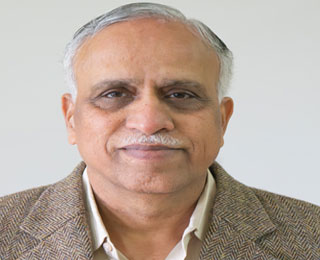Beyond Boundaries: The Evolution of Higher Learning in the Digital Era

Prof. (Dr.) Uma Bhardwaj , Vice-Chancellor, Noida International University
Professor (Dr.) Uma Bhardwaj brings with her extensive professional experience spanning 30 years, encompassing 5 years in the corporate sector and 25 years dedicated to teaching and research. Prior to joining our Noida International University, she held the position of Vice Chancellor at both MVG University and Mody University.
In an age which is defined by the rapid technological advancements and globalisation, the landscape of higher education is experiencing an intense transformation. The digital era has revolutionised the way we learn today, melting down the boundaries of learning that used to be confined to the physical lecture halls and classrooms. Gone are the days when learning was restricted by geographical constraints, all thanks to the transformative digital era, that made learning accessible around the globe. Now learning knows no bounds, reaching at every corner of the globe breaking all the barriers. This is reshaping how knowledge is accessed, disseminated, and applied, heralding a paradigm shift in education that is empowering like never before.
The advent of internet has levelled the playing field, enabling students to access to top notch learning materials from across the world, bringing knowledge to their fingertips. The internet has become a virtual classroom, where lectures, discussions, and collaborations thrive, transcending physical limitations and fostering a global community of learners.The evolution of higher learning is not just about the knowledge being easier to access. It also is about finding exciting new ways to teach and learn. The students are privy to virtual reality labs where they can journey to distant planets and do experiments and learn virtually, from the comfort of their room. And imagine textbooks that use augmented reality to bring history to life right in front of you, making it easier to understand and really get into it. The technology merged with the new learning techniques can help students to explore and learn in all the aspects that were previously inaccessible or impractical.
Moreover, the advancement of digital technology in higher education has led to the new methods of credentialing and accreditation that go beyond the constraints associated with conventional degrees. Micro-credentials, digital badges, and competency-based evaluations furnish learners with concrete evidence of their proficiencies and abilities, empowering them to demonstrate their expertise to employers and educational establishments in a more detailed and significant manner. This transition towards competency-based education not only enriches the pertinence and contemporary nature of educational qualifications but also nurtures an environment conducive to continual learning and skill enhancement.
"The evolution of higher learning is not just about the knowledge being easier to access. It also is about finding exciting new ways to teach and learn."
The rise of digital era has helped students to be able to afford the opportunity to engage with multiple area of knowledge simultaneously, allowing them to acquire diverse skills from across various disciplines. This multifaceted approach not only allows students to broaden their skill set but also enhances their capacity to thrive in a competitive industry. By immersing themselves in various subjects concurrently, students can develop a versatile skillset that is highly valued in today's job market.
Additionally, the use of technology in higher education has made it easier for students to connect and learn together, irrespective of where they are in the world. Online tools like forums, discussion groups, and virtual study sessions allow students to talk to each other and exchange ideas that help them to learn through each other's experiences. This helps them learn from people from varied backgrounds and viewpoints, which can make their learning process more interesting and lend different perspectives. These tools also help students develop important skills other than what they would learn from their study materials like the skill to work in a team, enhancing their communication skills, and thinking critically, which are equally necessary and much needed in today's global society. The use of online collaborative tools and platforms enable a real-time communication and association across geographical boundaries, facilitating interdisciplinary research and cross-cultural exchange for students.
However, amidst these exciting advancements, challenges remain. Ensuring equitable access to technology and digital resources is critical to bridging the digital divide and ensuring that all students have the opportunity to thrive in the digital era. Additionally, safeguarding academic integrity in online environments and addressing concerns about data privacy and security are also paramount as we continue to embrace digital technologies in education.
While digital tools have impacted education and learning it's important to understand that technology is evolving every day. As we navigate this new terrain, it has become evident that we need to integrate agile technology models to ensure efficacy of higher education in the modern world. By prioritizing inclusivity and ethical considerations in the integration of digital technologies, we can harness its transformative power to create a more accessible, engaging, and equitable future for higher education.
Prof. Prakash Gopalan, President, Noida International University
Professor Prakash Gopalan boasts over three decades of professional experience, during which he has occupied diverse roles in both faculty and administration at IIT Bombay. With a strong academic background, he has delivered over 12 core courses at the institution and was honored with the Best Teacher Award for his outstanding teaching performance in 2000.
In an age which is defined by the rapid technological advancements and globalisation, the landscape of higher education is experiencing an intense transformation. The digital era has revolutionised the way we learn today, melting down the boundaries of learning that used to be confined to the physical lecture halls and classrooms. Gone are the days when learning was restricted by geographical constraints, all thanks to the transformative digital era, that made learning accessible around the globe. Now learning knows no bounds, reaching at every corner of the globe breaking all the barriers. This is reshaping how knowledge is accessed, disseminated, and applied, heralding a paradigm shift in education that is empowering like never before.
The advent of internet has levelled the playing field, enabling students to access to top notch learning materials from across the world, bringing knowledge to their fingertips. The internet has become a virtual classroom, where lectures, discussions, and collaborations thrive, transcending physical limitations and fostering a global community of learners.The evolution of higher learning is not just about the knowledge being easier to access. It also is about finding exciting new ways to teach and learn. The students are privy to virtual reality labs where they can journey to distant planets and do experiments and learn virtually, from the comfort of their room. And imagine textbooks that use augmented reality to bring history to life right in front of you, making it easier to understand and really get into it. The technology merged with the new learning techniques can help students to explore and learn in all the aspects that were previously inaccessible or impractical.
Moreover, the advancement of digital technology in higher education has led to the new methods of credentialing and accreditation that go beyond the constraints associated with conventional degrees. Micro-credentials, digital badges, and competency-based evaluations furnish learners with concrete evidence of their proficiencies and abilities, empowering them to demonstrate their expertise to employers and educational establishments in a more detailed and significant manner. This transition towards competency-based education not only enriches the pertinence and contemporary nature of educational qualifications but also nurtures an environment conducive to continual learning and skill enhancement.
"The evolution of higher learning is not just about the knowledge being easier to access. It also is about finding exciting new ways to teach and learn."
The rise of digital era has helped students to be able to afford the opportunity to engage with multiple area of knowledge simultaneously, allowing them to acquire diverse skills from across various disciplines. This multifaceted approach not only allows students to broaden their skill set but also enhances their capacity to thrive in a competitive industry. By immersing themselves in various subjects concurrently, students can develop a versatile skillset that is highly valued in today's job market.
Additionally, the use of technology in higher education has made it easier for students to connect and learn together, irrespective of where they are in the world. Online tools like forums, discussion groups, and virtual study sessions allow students to talk to each other and exchange ideas that help them to learn through each other's experiences. This helps them learn from people from varied backgrounds and viewpoints, which can make their learning process more interesting and lend different perspectives. These tools also help students develop important skills other than what they would learn from their study materials like the skill to work in a team, enhancing their communication skills, and thinking critically, which are equally necessary and much needed in today's global society. The use of online collaborative tools and platforms enable a real-time communication and association across geographical boundaries, facilitating interdisciplinary research and cross-cultural exchange for students.
However, amidst these exciting advancements, challenges remain. Ensuring equitable access to technology and digital resources is critical to bridging the digital divide and ensuring that all students have the opportunity to thrive in the digital era. Additionally, safeguarding academic integrity in online environments and addressing concerns about data privacy and security are also paramount as we continue to embrace digital technologies in education.
While digital tools have impacted education and learning it's important to understand that technology is evolving every day. As we navigate this new terrain, it has become evident that we need to integrate agile technology models to ensure efficacy of higher education in the modern world. By prioritizing inclusivity and ethical considerations in the integration of digital technologies, we can harness its transformative power to create a more accessible, engaging, and equitable future for higher education.
Prof. Prakash Gopalan, President, Noida International University
Professor Prakash Gopalan boasts over three decades of professional experience, during which he has occupied diverse roles in both faculty and administration at IIT Bombay. With a strong academic background, he has delivered over 12 core courses at the institution and was honored with the Best Teacher Award for his outstanding teaching performance in 2000.

